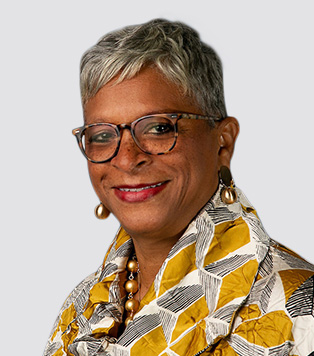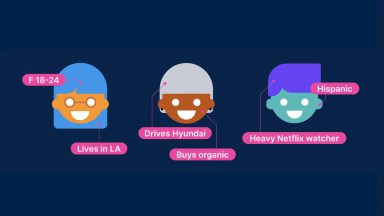
As we wrap up Women’s History Month, I‘m reminded of this year’s International Women’s Day theme: #ChoosetoChallenge. Such a fitting theme for the time we are living in. Women everywhere are bearing the brunt of the COVID-19 pandemic. Even the UN has warned of its adverse impact on gender equity. Yet women have risen to the challenge, continuing to break the glass ceiling and owning a seat at the table. In early 2020, Fortune announced that there are more women at the helm of Fortune 500 companies than ever before: 37 out of the 500 CEOs are female. According to Lean-In, 21% of C-suite leaders today are women, but just 1% are Black women. It is truly a privilege to be able to challenge—and I started to question what it takes to have that privilege, to be valued for who you are and what you can do to make a difference.
As Nielsen’s leader for diversity, equity and inclusion (DE&I), I can challenge the status quo, ask uncomfortable questions and pave the way for change. But for many working women, getting to a role like mine feels more like a pipe dream. While DE&I has become the latest corporate buzzword, the most successful companies have a common denominator: a CEO or leader who is passionate about infusing DE&I throughout the company and acts to drive change. Nielsen has our CEO David Kenny, who until recently, played the dual role of CEO and CDO so that he could act quickly to improve representation. Find people who share your passion and will trust and empower you to do what is right for the company.
When I first came to Nielsen at the end of 2019, I went on a listening tour and heard so many diverse employees, including women, who felt they had been passed over for promotions and that they didn’t have any advocates because there were few senior leaders who were like them. Often they were Black women like me, who told me they were seen as the “angry Black woman” and felt stuck—if they didn’t speak up, nothing changes, and if they did, they were stereotyped. I’ve experienced this, too, throughout my career, but I’ve learned that there’s a right and wrong way to speak up. Finding allies and building relationships are critical. Mentors who have a seat at the table can help advocate for you when it comes to landing your next big opportunity. Early in my career, I purposely chose a White male executive coach who could share his point of view, and challenge me. I learned how he saw me, and how to use my strength to bring people in instead of repelling them. Find a mentor who isn’t like you.
Another aspect of choosing to challenge is having the courage to challenge. It’s why I’ve made DE&I my life’s work. We must have courage to present things that people don’t know to help them to see things differently. While programs like breaking bias training is important, you can’t train people to change their minds. What’s more impactful is creating experiences and having direct conversations with people so they feel differently about a particular topic or group. I recently heard from several White employees who challenged our use of “White privilege,” saying that they, too, have had to struggle to get ahead or work hard to get where they are at. It took a direct conversation and courage to share my personal experiences of discrimination as a Black person to help them understand. It was one conversation, but you will change someone’s life and they are going to multiply that when they share that story with others.
Changing people’s perceptions at a large global organization is going to take time. I’m at a point where I am in a position of privilege and where I can choose to challenge discrimination, directly impact the lives of thousands of employees, and pay it forward to lift up underrepresented groups. Being Nielsen’s Chief Diversity Officer is the perfect place for me right now.



